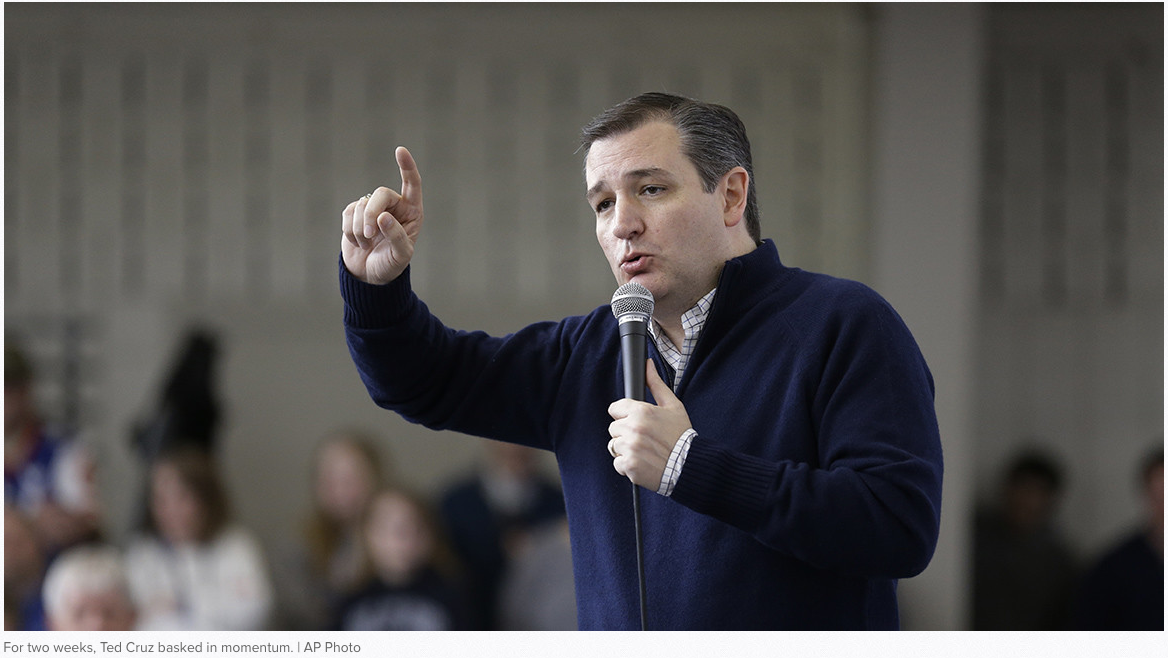By targeting evangelicals and libertarians from the very start, he dominated from the two most reliable Iowa voting blocs.
DES MOINES, Iowa — In August of 2014, just 19 months after joining the U.S. Senate, Ted Cruz was already reviled by many people in Washington. But that made him only more appealing to the dozens of grass-roots activists and conservative leaders who gathered in a room at Iowa State University on the weekend of Aug. 9 to meet with him on the sidelines of a socially conservative cattle call.
At Cruz’s request, conservative radio host Steve Deace had assembled a wide-ranging group that included libertarian Ron Paul acolytes and evangelical home schooling proponents, disillusioned party activists and grass-roots organizers.
Even at that early juncture, Deace said, Cruz was probing whether it was feasible to unite various elements of the conservative base — libertarians, evangelicals, tea party activists — behind one grass-roots-approved presidential candidate.
“He was here to say, ‘Hey, I’m here to find out from you whether this was possible, the only way this is going to work is if conservatives can unite behind a candidacy,’” Deace said. “Was it possible to put libertarians and evangelicals on the same team?”
The answer wasn’t clear then, nor was it apparent when Cruz became the first candidate to announce for president the following March, only to be quickly overshadowed as others joined the race.
Ben Carson, Mike Huckabee and Rick Santorum were all vying for the evangelical vote and already enjoyed reservoirs of goodwill from that constituency. Rand Paul, whose father scored a robust 21.5 percent finish in Iowa in 2012, was the clear favorite among libertarians. And Wisconsin Gov. Scott Walker was already viewed as a strong contender in Iowa, where he was thought likely to unite Christian conservatives and business types.
But only Cruz, who burst onto the national stage as a tea party star during his 2012 upset Senate victory, was already strategizing about how to strengthen his evangelical and libertarian bona fides and capitalize on his existing tea party activist support to become the consensus conservative choice.
Source: Katie Glueck, http://www.politico.com
 Listen Online
Listen Online Watch Online
Watch Online Find a Station in Your Area
Find a Station in Your Area








 Listen Now
Listen Now Watch Online
Watch Online
